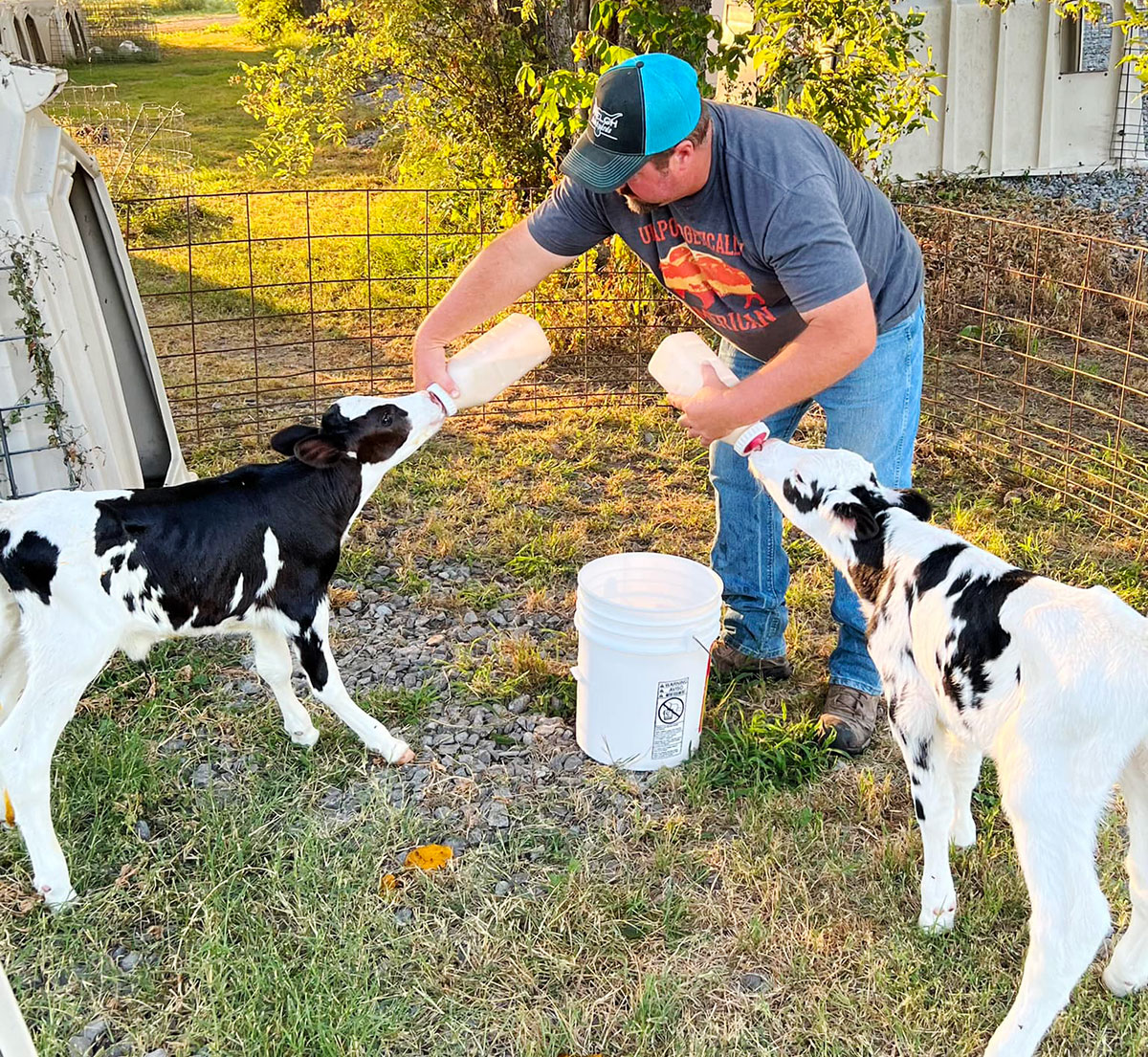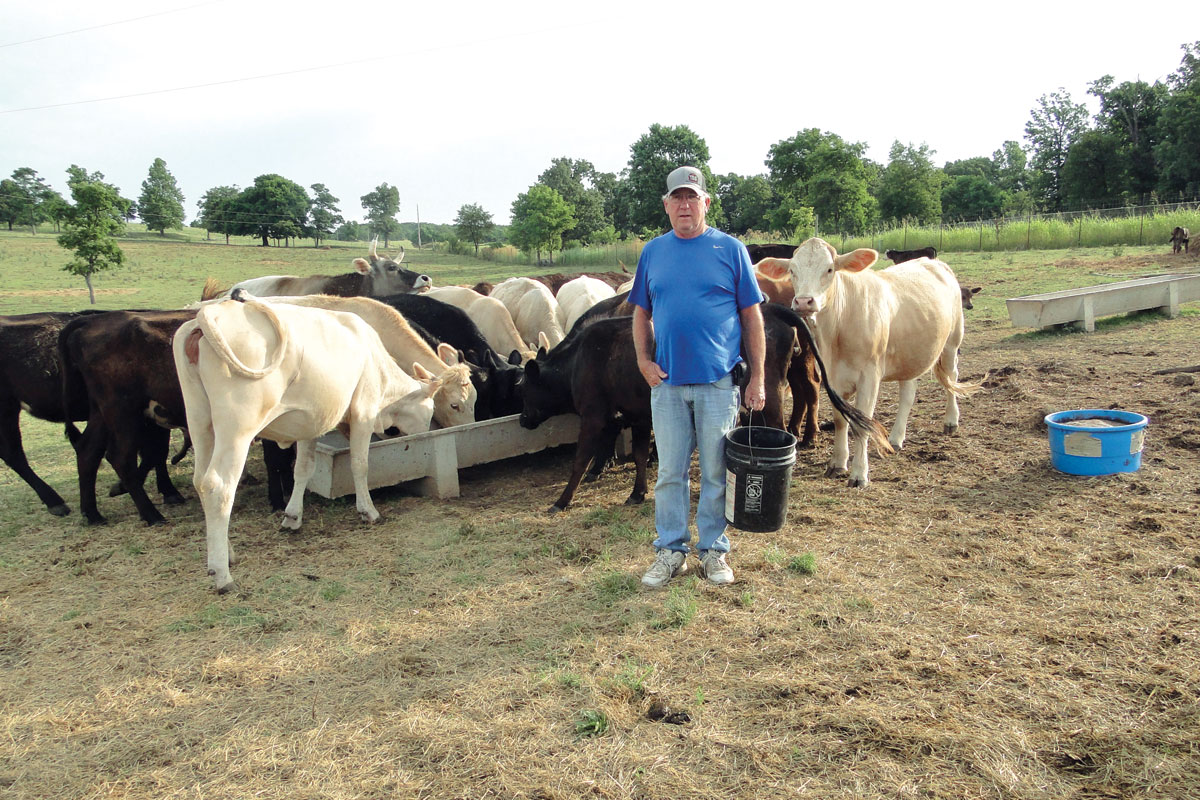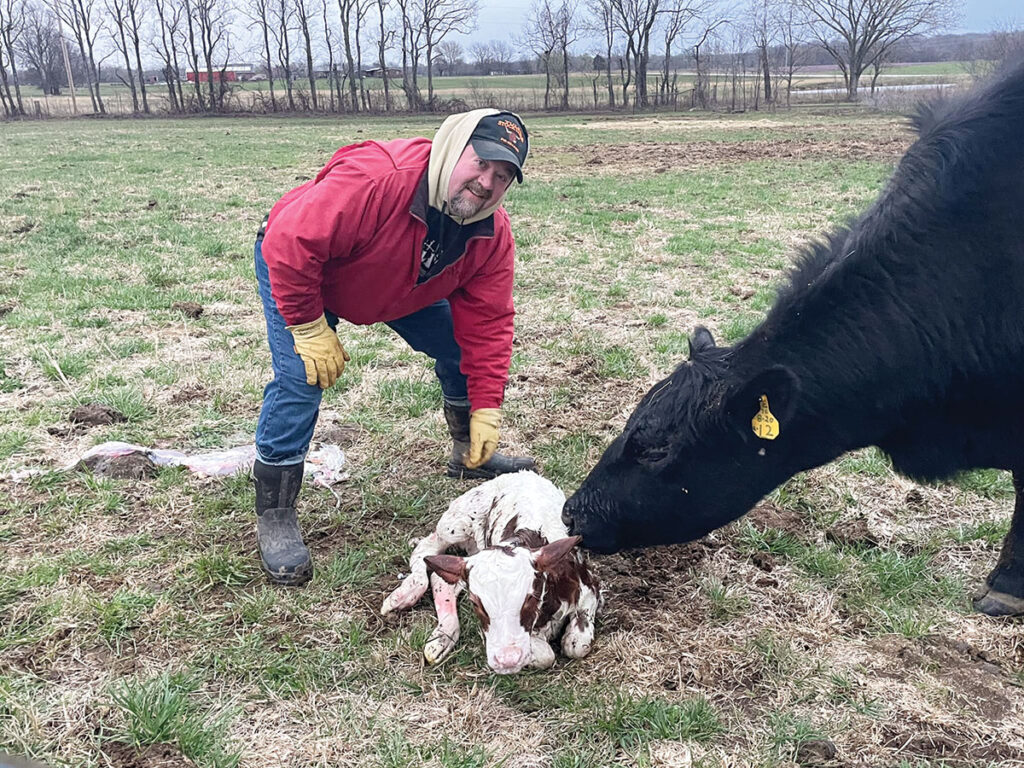
Brandon Covey is a third-generation dairyman at his family’s Rose, Okla., farm
ROSE, OKLA. – Brandon Covey knew he had big shoes to fill when he took over as owner of the Covey Farms in Rose, Okla. He knew all about the previous owners’ accomplishments during the past seven decades.
Brandon knew everything because the previous owners were his family. His grandfather, Locial Covey, started the dairy farm in 1949 from the ground up. Then his father, Stan Covey, took over in 1977 and turned it into the top Ayrshire herd in the nation.
Yet, in the three years since Brandon Covey took the lead, he has overseen Covey Farms transition into the unique position of producing both dairy and beef cattle. “We’re still kind of in transition. He says he is retired, but he’s still pretty active in the dairy,” Brandon said of his father. “In the meantime, our herds have kind of separated. We’re breeding Holsteins back to Holsteins. I’ve actually bought a few registered Holsteins now. Our beef is kind of separate now. By now, most of them are three-quarters to seven-eighths Angus. At one time, it was kind of all mixed up, but we’ve got the beef side and the dairy side.”
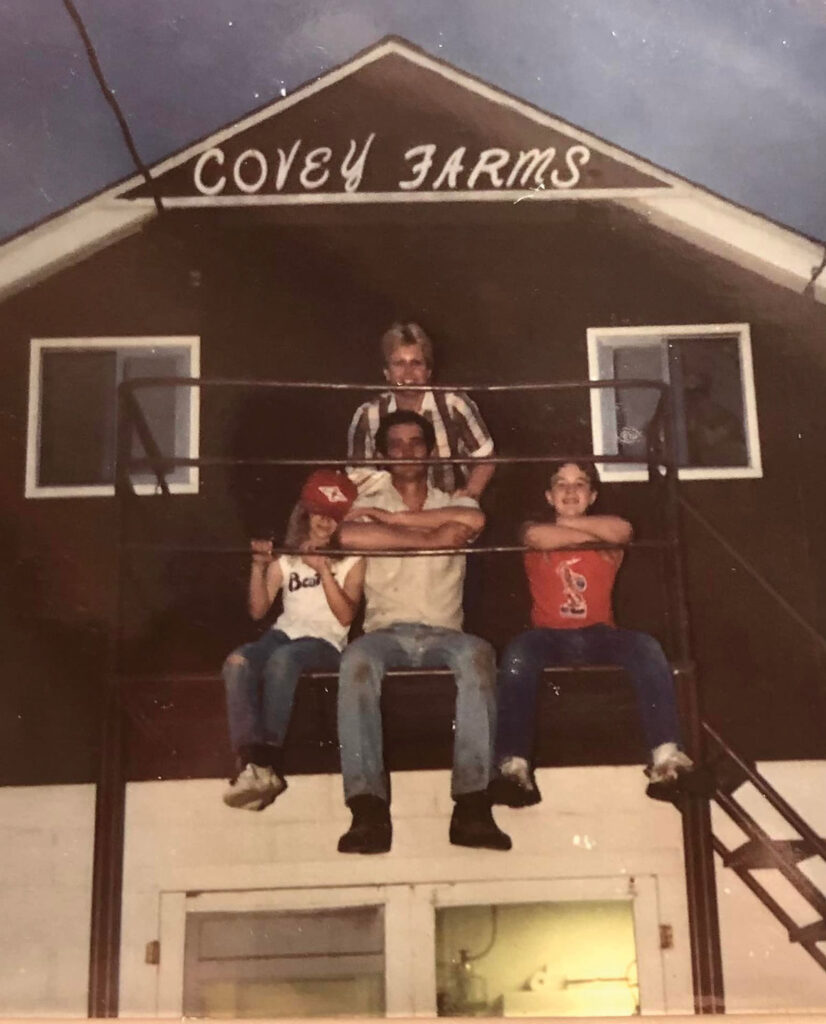
Covey Farm sits on 1,000 acres in Eastern Oklahoma with around 250 head of dairy cattle.
“We have a pretty big gap. We had some older cows, and then (Stan) had bred everything to Angus. So we have a big gap there. But once I came back to those calves that we bred, they’ve been born and now gotten old enough, so they’re just now getting old enough to breed again. So it’ll be a while before they get into the milking herd. I think we’re milking about 150. So I probably have got about 100 other heifers scattered around.”
The Ayrshires currently being bred on the Covey farm are from embryos frozen three decades ago by Stan Covey. At the time, according to his son, he didn’t know what he would do with them but knew they were a valuable commodity.
“Around 30 years ago was when I believe he flushed the cow and he had these embryos. He used some here and there,” Brandon said. “Along the lines, he was just going to retire, and I don’t really know if he had plans for the embryos or not; I guess just to let him sit there. We had a few Angus cows and I didn’t like their genetics, but they looked like they’d be good recipients. And I said, ‘Hey, let’s just use those embryos and see what happens.’ So we’ve got calves on the ground now that have been here for 30 years. It’s kind of cool.”
Brandon has another 350 head of Angus crossbreeds on the beef side, including some registered Red Angus Brandon said his wife talked him into.
While having both beef and dairy cattle on the same farm has worked out well for Covey Farm, it was never the initial plan. After decades of being primarily a dairy farm, the elder Covey had been looking to transition into strictly beef.
“Having to be responsible for milking twice a day, seven days a week, he was kind of wanting a slower pace deal,” Brandon said.”His plan was to eventually sell out the dairy as the cows got older and be done with it. But I came back, and we started breeding, and I bought a few registered. I don’t know that was always the plan, but that’s the way we are now.”
While the work hasn’t gotten easier, Brandon saw the value of keeping at least part of the farm as a dairy.
“Fortunately, the dairy over the years has paid for a lot of the equipment and hay for the beef cows,” Brandon said. “I can’t say the beef cows would be self-sustaining if the history of the dairy hadn’t laid the foundation.”
Having a dual farm is still challenging.
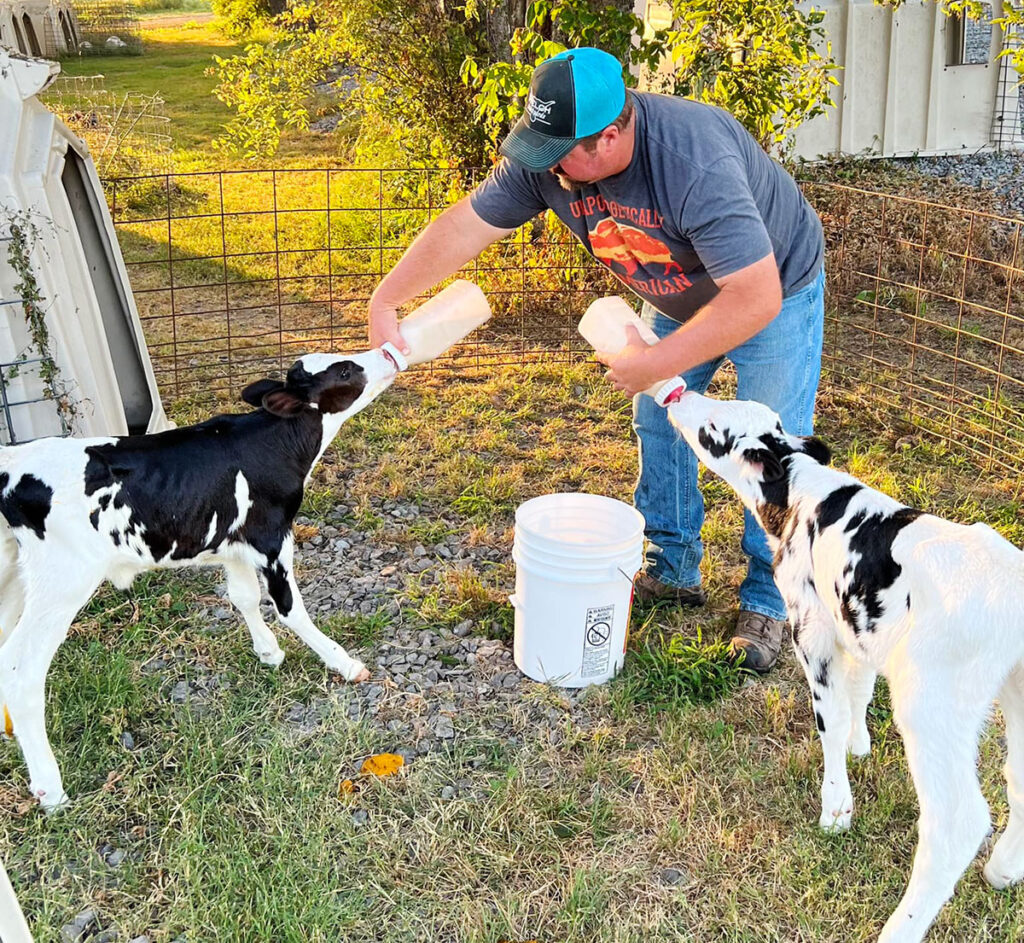
“I’m pretty happy doing the beef and the dairy. But it is a lot of work, and it’s a lot different,” Brandon said. “You got to switch gears in the middle of the day, going from one to the other. We’ve got some really, really good employees. Without them, I don’t know that I could do it or even want to do it. We’ve got a guy who enjoys the milking, and he’s really consistent. He helps with even a lot of the decisions. So that part is really good.”
Brandon doesn’t plan to change the setup but has learned to keep his options open.
“You never can tell how things change,” he said. “If some of my guys ever left, I might consider selling the dairy because it’s too much work for me right now.”
Brandon would be willing to part with the dairy portion of the farm because he saw growing up how time-consuming it was for his father. s
‘I’ve still got my family, and we want to do some things,” Brandon said. “I saw the way my dad did. He worked a lot and I’m thankful for that, but we were pretty tied to it growing up.”
Brandon doesn’t envision Covey Farm getting much bigger, but he will still fine-tune and look to improve in every facet of the operation.
“I like knowing the cow’s number, at least on the dairy side,” he said. “I know most of their numbers; I know what they’re bred to. I think much more than that I probably couldn’t keep track. I would like to keep working on the genetics of both sides; the dairy and the Angus. We’ve still got some Angus that are still kind of dairy-looking. They’re not as efficient on the grass. I’d like to slowly replace them. And with dairy, as those cows get older, bring in some of these genetics we’ve been working on. Just get that back up to where he had it when he (Stan) was in his prime.”

